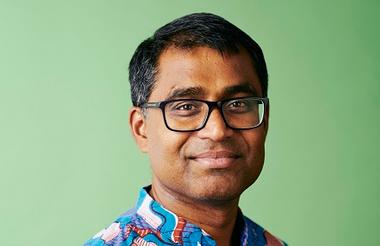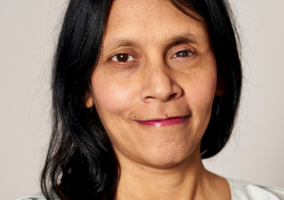The former chief executive of Oxfam has said the country needs a charity sector that can “deliver systemic change and fundamentally rewire our society”.
In a speech last Friday, Danny Sriskandarajah, who joined the New Economics Foundation as CEO last year, said the sector needs to do more than “simply tweak the system to make it a little bit better”.
At the Institute of Chartered Accountants in England and Wales’s annual charity conference, Sriskandarajah discussed how civil society can deliver a more just and sustainable future.
He also said organisations and institutions that will thrive in this century are the ones that involve and engage people in “equal, participatory ways”.
‘We hold the keys’
Sriskandarajah said the idea that charities are here “to do good work alongside the state and the market is fundamentally problematic today”, citing challenges such as low levels of trust in politicians, divided societies and fake news.
He argued that one should not assume that charities “can simply tweak the system to make it a little bit better” and that “we can make some incremental changes and put a band-aid over here”.
“Instead, what we need is a voluntary sector that can and must deliver systemic change and fundamentally rewire our society,” he said.
“The reason I remain so hopeful, and why I’m proud to be part of our sector, is because I think we hold the keys to doing that.
“I trust us more than I trust our politicians or business leaders and certainly the techno feudalists that run the digital economy because I think within our hands lies the potential to rewire the way that public participation works in politics and rewire and re-imagine new forms of economic organising that put people and planet first.
“More cooperatives, mutuals, citizens, assemblies and direct participation: those are the things that the charity sector can do in powerful, innovative ways.”
Taking accountability at Oxfam
Reflecting on his experience as Oxfam’s CEO, Sriskandarajah said accountability at the charity “wasn’t enough”.
“It turned out, for a bunch of reasons, that we needed to think again about what accountability meant for us and in this era.
“We set about doing a few things. One was an accountability to the people we served, particularly to prevent harm.
“Many of you will be familiar with the very high-profile failures of Oxfam and other organisations in the development sector when it came to sexual misconduct. There were systemic safeguarding failures such that these organisations were allowing harm to happen.
“In the rush to do good, save lives and respond to emergencies, they were allowing harm to be done.”
A fundamental part of restoring trust at Oxfam, he said, was “thinking about accountability, for example, in that way, trying to make sure that we minimise the risk of harm externally”.
Changes included looking at the charity’s governance and leadership structures and creating a global assembly to increase transparency, diversity and accountability.
Involving and engaging people
Sriskandarajah also said the organisations that will thrive in the rest of the 21st century are the ones “that are going to be much better at involving and engaging people in more meaningful and hopefully more equal, participatory ways”.
“You don’t treat people in a paternalistic, extractive way. You empower them and bring them into your organisation.
“Some of the most interesting things I see in the wider society are new forms, sometimes old forms, of organising life and human activity that are much more cooperative and based on mutual.”
He gave the example of his foundation’s work with credit unions, which have “been around for hundreds of years in many parts of the world”.
“Credit unions are a fabulous example of thinking about financial inclusion, not through the charitable model of donating to or helping people out, but instead empowering people who might be financially vulnerable or insecure to become members and co-owners of the very financial institutions that will hopefully make them more financially secure.”
Related articles












